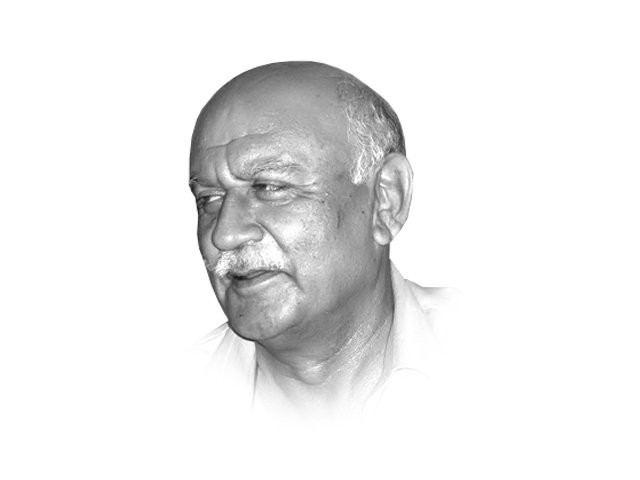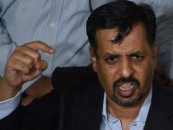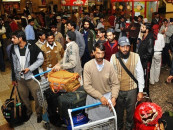The Middle East initiative on peace and security
General Raheel Sharif is tipped to take over command of the Middle East Initiative on Peace and Security

The writer is a retired brigadier and a former president of Islamabad Policy Research Institute
Firstly a clarification. Raheel’s appointment is still a proposal and awaits finalisation. I believe its finalisation will depend on whether the proposal is acceptable to the government of Pakistan and to Raheel. So when the Defence Minister informs the Senate that Raheel has not sought a No-Objection Certificate, it’s because that stage has not arrived but more because he has been assured by the PM that all prerequisites will be taken care of.
Let me begin by admitting freely that I, too, have been a most severe critic of this conception. In fact, I consider it as having been conceived with malafide intent. But Raheel has been working on me and, though still a sceptic, I am beginning to reconsider my position on this concept.
To begin with, let me address the simpler aspects that I am fully in picture of.
The Saudi Kingdom had initially included Pakistan’s name in the alliance after a mere verbal agreement by the PM. Although subsequently parliament accepted this proposal with some reservations, the government was enthusiastically committed to it from the very beginning.
Consequently, the first question(s) being raised as to whether governmental approval has been obtained and/or whether all procedures and constitutional reservations on this will be followed are totally spurious. No prerequisite will be omitted.
When the Saudis suggested the name of Raheel, the government was most keen and Raheel, reluctant. In time, as the Saudis explained their purpose, Raheel also became increasingly enthusiastic. But he made his preconditions clear.
First, the lead role is his alone; without interference. Second, Iran and other Shia majority countries must, in due course be offered membership. Third, the MEIPS should have collaborative members e.g., USA, China and Russia (USA and China are on board already) and finally fourth, that Raheel will be the principal mediator for all disputes within the alliance and without.
I gather that the constitution of MEIPS and its aims or intents are in the process of being finalised and are being prepared with Raheel’s input. And that, while it is generally being touted as a “Military” alliance due to the fact that its target is terrorism, its principal initial targets are essentially non-military.
It will be looking at funding for terrorist organisations and seeking to dry it. Since the Saudis are considered the major source of this funding, there is no more country suited to begin with than their own.
It will address measures to prevent cross-border movement. Who is better suited to address this issue than Pakistan’s most successful COAS? The individual who left no stone unturned in his repeated attempts to support the current Afghan government and reduce cross-border activities? And, might now be far more effective when he speaks and negotiates on behalf of thirty-nine Muslim-majority countries?
I gather that a purely military intervention akin to the UN forces is a very distant dream; that presently, the IMAFT will be looking essentially at non-kinetic means to address the scourge of international terrorism, including many far ranging subjects like education.
And that, the closest to kinetic means that might be possible in the not-too-distant future could be training.
I admit to having considerable affection for Raheel, but I also hold him in considerable respect. Not only for his successes or for how far he has risen but also for his character and integrity.
I am certain, therefore, that he will not violate any rules to accept any assignment. There has been speculation as to whether he might have succumbed to the lure of money.
I have absolutely no idea of what he has been offered but, it must be what the Saudis think he is worth and I am certain it must be a considerable sum.
However, knowing him well, I can state with certainty that, however much the lure of wealth, Raheel will never accept an assignment wherefore he might face a conflict of interest with his country and, if faced with a conflict will quit forthwith.
I can equally confidently assert that wherever he may serve, he will make every endeavour to seek and guard his national interests. And I can equally confidently assure everybody that he will undertake every assignment with the determination of doing well but following his conscience.
Raheel has absolutely no sectarian bias in him and will also make every effort to promote sectarian harmony and, one reason why he has insisted on the role of mediator is for this purpose.
As stated earlier, I am still skeptical. But that’s because Raheel being straight forward, is not as suspicious of other’s motives as I am. And, therefore, might not always be aware of what is happening behind the curtain.
However, I wish him every success, hoping that, a year from now, he will again be winning encomiums from all.
Published in The Express Tribune, January 17th, 2017.
Like Opinion & Editorial on Facebook, follow @ETOpEd on Twitter to receive all updates on all our daily pieces.















COMMENTS
Comments are moderated and generally will be posted if they are on-topic and not abusive.
For more information, please see our Comments FAQ